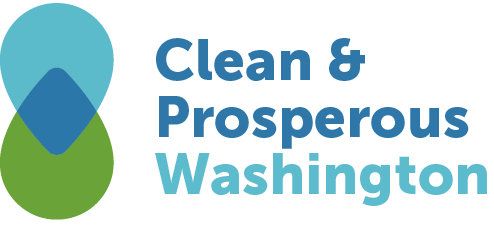[Cheesy subject line goes here]
Nope. Not going to do it. On this National Cheese Day (go ahead and look it up), your inbox may be full of emails with silly headlines like “Say Cheese!” or “It’s a Brie-utiful Day!” or “Gouda Morning!”. Our message today is too important to be cheesy.
Good things come from the 180 cows at Knott Dairy Center in Pullman, including Ferdinand’s ice cream, world-famous Cougar Gold Cheese, and best-practices in dairy management developed through rigorous research and testing by the Washington State University Department of Animal Sciences. Go Cougs!

With Climate Commitment Act funding, Washington State University will reduce the carbon footprint of cheese and dairy production. Capturing methane through anaerobic digestion reduces emissions, creates renewable energy and produces soil amendments for the agricultural community.
Good things are coming TO the Knott Dairy Center in Pullman, too: Thanks to the Cap-and-Invest Climate Commitment Act, WSU’s Knott Dairy Center will build a state-of-the-art dairy anaerobic digester.

Commercial-scale phosphorus and nitrogen nutrient recovery facility integrated with a dairy anaerobic digester, Lynden, WA. Photo courtesy of Eric Powell.
WSU explains the rationale for implementing emerging phosphorus and nitrogen nutrient recovery technologies on dairies:
“Current manure management strategies may not be adequate to meet the environmental challenges facing the dairy industry today. Technologies that recover, concentrate, and partition nutrients may contribute to a solution to these problems, in combination with improved regulatory structures, markets, and enhanced wastewater and fertilizer application management. Many of these nutrient recovery solutions work in concert with anaerobic digester technologies, which provide additional benefits in the form of renewable energy and GHG emissions reductions.
These emerging nutrient recovery technologies are still under development, with particular effort being made to reduce costs and produce products that are easy to transport, store, and apply at chosen rates with chosen application methods. Pathogen risk reductions and organic certification are also receiving ongoing attention. Together, these efforts aim to produce an economically viable option for nutrient management that makes sound business sense for dairy producers.”
This Climate Commitment Act investment promises to pay dividends for dairy producers across Washington state. Dairy producers also have access to $20,000,000 of CCA funds for the installation of anaerobic digesters. Others benefit from these investments as well, such as blueberry farmers who can amend soil pH with digester-produced ammonium sulfate, ranchers who can power trucks with biogas, and crop farmers who can replace imported chemical nutrients with manure-derived nutrients.

But all these benefits will be lost if the Cap-and-Invest Climate Commitment Act is repealed through Legislative, Executive, or other actions. Without funding from the Climate Commitment Act, WSU will lose this opportunity to develop and demonstrate methane-reducing, revenue-producing technology for broad adoption by Washington’s dairy producers.
We think losing the Dairy Digester in Pullman would be a real cow-tastrophe.
And this is just one of over a thousand projects at risk of repeal.
Explore the new “Risk of Repeal: Mapping Washington’s Climate Commitments” map from the Clean & Prosperous Institute to see where the state is investing Climate Commitment Act revenues and to grapple with which of those investments face the highest risk of disappearing if the Cap-and-Invest program is repealed. The Risk of Repeal mapping tool was created by Zac Pinard, GIS Specialist. A team of students from the University of Washington provided additional research and design assistance. Go Huskies!


